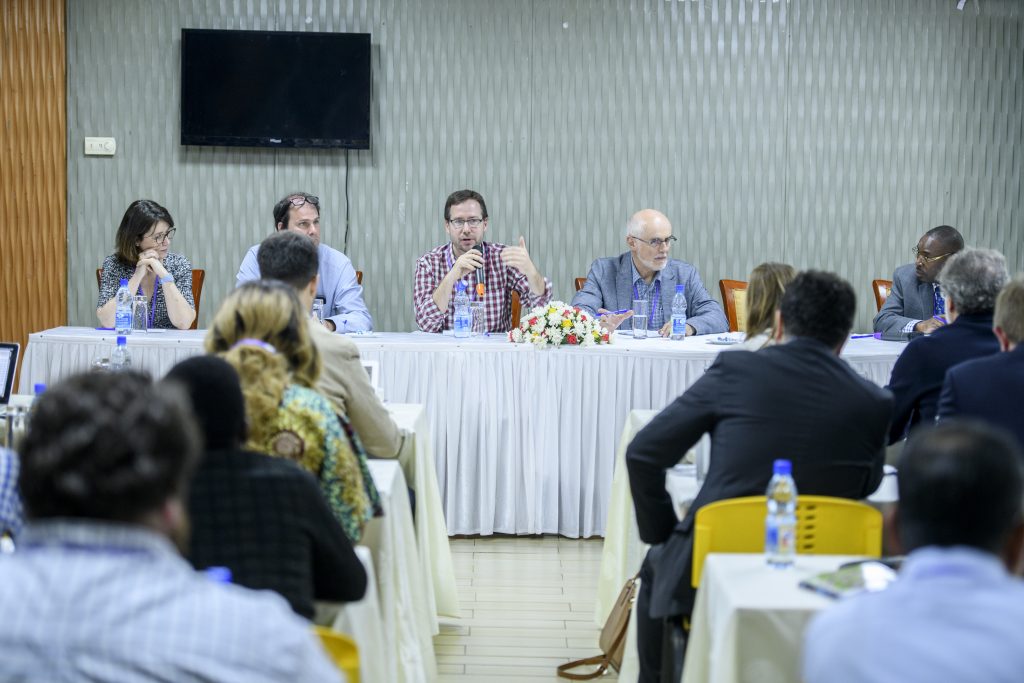In Kampala today, experts from 27 countries have developed consensus on which diagnostic tests should be deemed ‘Essential’ by the World Health Organization. The WHO has had a listing of essential medicines for decades and has just launched a process for approving key tests for improved health and public health. This is the first time such a consensus meeting has been held.

Lead by the Global Action Fund for Fungal Diseases (GAFFI), clinical practitioners from low and middle income countries debated the diagnostic performance, value for money and ease of use of 7 tests:
- Cryptococcal antigen for cryptococcal meningitis in AIDS
- Histoplasma antigen for disseminated histoplasmosis in AIDS
- Toxoplasma antibody for brain abscess in AIDS and infection in pregnancy to avoid brain damaged newborns
- Pneumocystis PCR for pneumonia in adults and children with AIDS
- Aspergillus antibody to diagnose chronic pulmonary aspergillosis, often confused with tuberculosis
- TB LAM an urine antigen test for rapid diagnosis of disseminated tuberculosis in AIDS that has been shown to save lives
- Therapeutic antifungal drug monitoring for the life-saving, Essential Medicines itraconazole, voriconazole and flucytosine, to ensure adequate levels in the blood, often a problem in AIDS and children especially.
The consensus meeting is being held in Uganda which ranks 4th in Africa in terms of scientific publications and has made enormous contributions to our understanding of HIV disease and fungal meningitis in particular. Like many other African countries fungal diagnostics are limited in scope to cryptococcal antigen (some countries), microscopy and culture (very few countries). More rapid non-culture tests are not available, and this general neglect contributes to the 1 million AIDS deaths annually worldwide.
The call to action by the WHO was voiced in the New England Journal of Medicine (Schroeder et al) in 2016 and the week of April 16th the WHO is holding its first Advisory meeting (SAGE). GAFFI’s input will inform the advisory group.
Participants included representatives from several Ministries of Health in Africa, the World Health Organisation in Geneva and WHO Collaborating Centre for Medical Mycology in Chandigarh India, Medicines Sans Frontiéres, Centres for Disease Control and Prevention USA, UNITAID, Infectious Diseases Institute Kampala, African Society of Laboratory Medicine, National Institute for Communicable Diseases South Africa, The National Aspergillosis Centre UK, Amref, Clinton Health Access Initiative and experienced clinicians and senior laboratory staff from multiple countries.
Professor David Denning of the University of Manchester and President of GAFFI commented: “Fast, accurate diagnosis is essential to reduce deaths from AIDS. GAFFI’s modeling suggests that making the key diagnostic tests available for only 60% of needy patients, with treatments, could save over a million lives in the next 5 years. Our consensus meeting is another key step on that road, with later endorsement of the conclusions required by the WHO.”